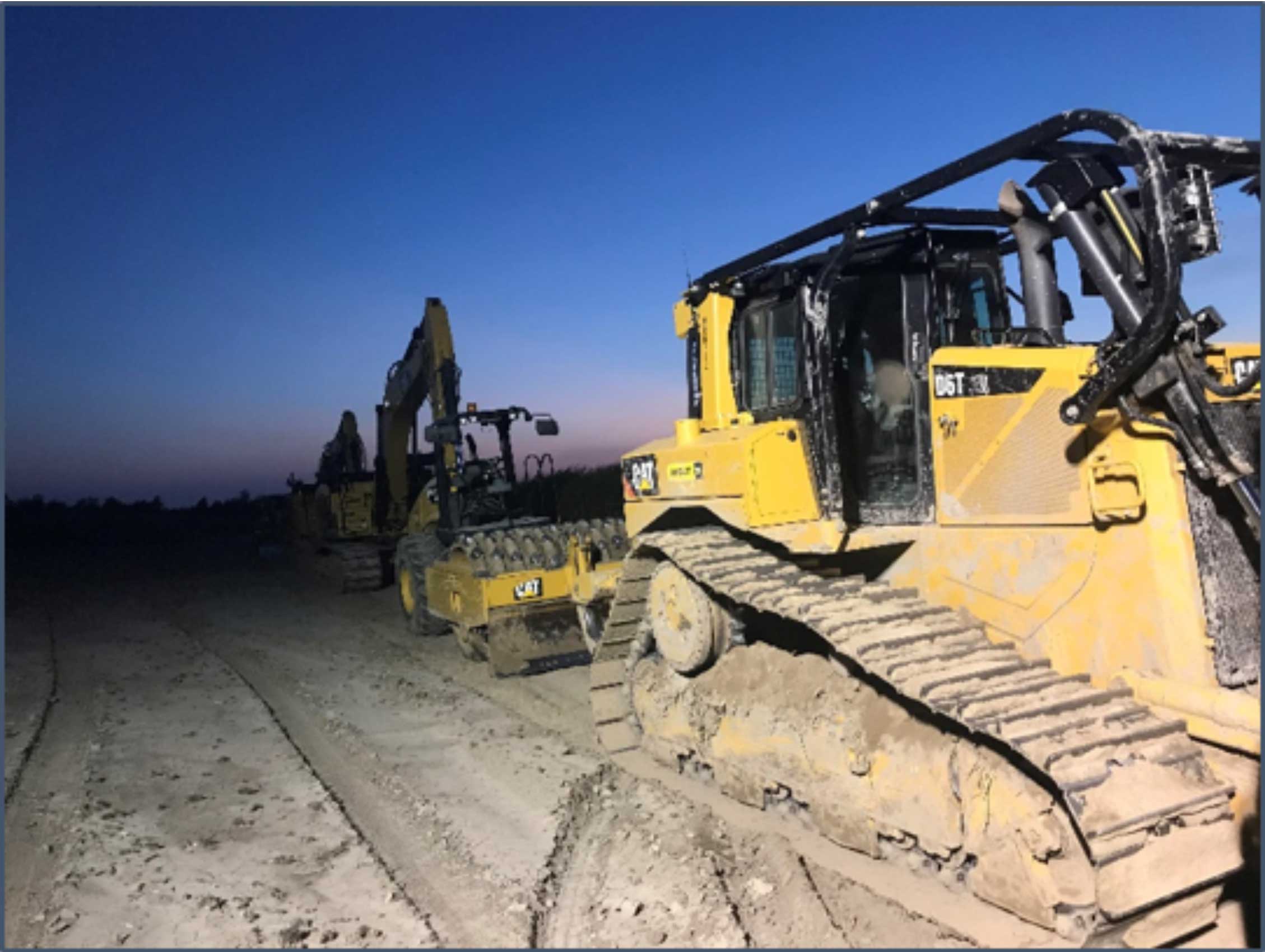
The McAllen U.S. Attorney's office in the Southern District of Texas has sued to temporarily halt construction of a private border security wall along 3.5 miles of privately held Rio Grande floodplain, to ensure that Fisher Industries, which is working with its minority partner, the nonprofit, crowd-funded We Build the Wall, Inc., obtains the necessary federal approvals first.
The demand by President Trump's Office of the U.S. Attorney for a temporary work stoppage at the site near Mission, Texas, comes on the heels of a state judge's order that construction stop until separate objections by the National Butterfly Center upstream can be fully assessed.
The upshot of these legal moves is that several miles of wall will not go up on the planned timeline of mid-January.
Or, potentially, ever.
At issue, federal attorneys allege, is that the International Boundary and Water Commission (IBWC), a bilateral U.S.-Mexico agency responsible for managing the Rio Grande, might not get a chance to review Fisher's hydrology impact plan to ensure the wall doesn't change normal river flow or flood paths in line with international treaty obligations. Fisher Industries, the $40 million project's lead, has cleared and graded ground along a 120-foot wide, 3.5-mile long riverfront zone it purchased where the steel-bollard wall would go up. Panels were supposed to start going in next week.
The federal suit was rushed out after We Build the Wall officials announced on its social media that "The wall is going up this week no matter what, we will not stop until it's finished," the federal complaint said.
We Build the Wall officials said Fisher Industries has a completed hydrology report that proves the wall will not impact flows and was always planning to file it before panels went up. An official of the nonprofit, not authorized to speak, told CIS: "Everything revolves around this hydrology report. Everyone's always forewarning us, 'wait, wait, stop stop!' But we've always fully intended on complying with that."
We Build the Wall's Brian Kolfage announced in a tweet Thursday that his organization was dropped from the suit and that "it will all unravel soon as it's baseless claims are based on garbage from a group who enables cartels."
Still, there's certainly no guarantee that IBWC will approve the hydrology report or not require further, time-consuming work, or that an approval won't draw challenging litigation further delaying construction.
Litigation like this was anticipated. As I recently reported from the construction site before any lawsuits were filed, "legal injunction talk" began ginning up against the project as soon as large construction equipment began arriving at the river in early November, and the IBWC was "ratting sabers".
Anti-Trump neighbors at the National Butterfly Sanctuary, who had unsuccessfully sued to stop federal wall projects in the area, began objecting to the We Build the Wall project almost immediately and issued a call for lawyers to help fight it.
Social media warfare broke out between pro- and anti-wall factions.
Then the National Butterfly Sanctuary filed the first suit, in state court, seeking a temporary injunction on claims that the wall would irreversibly damage its property upstream.
Javier Pena, a lawyer for the sanctuary, told CIS the fence would block flood water and "basically act as a dam" causing inundation, erosion to butterfly property, and "ecological horrors".
"The only wall that should be built is a wall that has been approved by the United States government," Pena said. "We'll see if the judge agrees with them."
Pena no doubt was aware that construction on federal walls in the politically blue region has slowed to a crawl, months behind schedule, by litigation over land access and bureaucracy.
